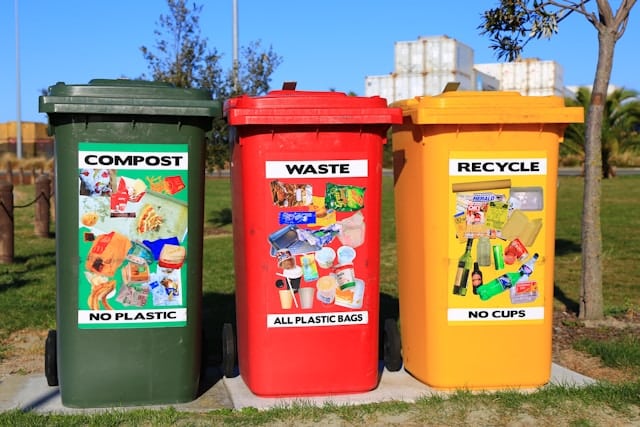What Are the Strategies for Water Reuse and Recycling in Real Estate Projects?

The discourse around water reuse and recycling is gaining momentum, especially when we consider the increasing global population and the growing demand for potable water. This reality necessitates a shift from the traditional reliance on freshwater sources to innovative water management strategies. One such strategy is incorporated within the realm of real estate projects. This article delves into the strategies for water reuse and recycling in real estate projects, and how these innovations contribute to environmental sustainability.
Implementing Onsite Water Recycling Systems
Integrating onsite water recycling systems into real estate projects is a viable solution for conserving water. These systems recycle wastewater generated within the property and convert it into high-quality water fit for non-potable uses such as toilet flushing, laundry, and irrigation.
A lire en complément : How to use gamification to engage potential buyers in the real estate market?
Onsite water recycling systems function through several stages of treatment, including sedimentation, biological processes, and disinfection to ensure the recycled water is safe and meets the required standards. These systems are commonly integrated into new real estate projects, but can also be retrofitted into existing buildings. Implementing such systems require a comprehensive understanding of state and local regulations, and often require a permit.
Incorporation of Rainwater Harvesting Systems
Another valuable strategy is the incorporation of rainwater harvesting systems into the design and construction of real estate projects. Rainwater harvesting involves the collection and storage of rainwater for potable and non-potable uses. This water recycling strategy not only conserves water but also reduces the demand on the municipal water supply.
Avez-vous vu cela : How to Develop Real Estate Projects That Cater to Remote Work and Digital Nomads?
Rainwater harvesting systems can be installed on a variety of scales, from small residential properties to large commercial buildings. These systems typically include a catchment area (usually the roof), a conveyance system to direct the water, storage tanks, and a treatment system to ensure the quality of the harvested water. Like onsite water recycling systems, the incorporation of rainwater harvesting systems requires a deep understanding of state regulations and local requirements.
The Use of Recycled Water for Irrigation
The use of recycled water for irigation is another effective water recycling strategy in real estate projects. This strategy is particularly beneficial in regions with limited water resources or high irrigation needs.
Recycled water for irrigation is typically sourced from wastewater that has been treated and disinfected to meet strict environmental and health standards. The use of recycled water for irrigation helps conserve potable water sources, reduce wastewater discharge, and provide a reliable water source for landscaping and agriculture within the real estate project.
However, it’s crucial to take into account any state or local regulations regarding the use of recycled water for irrigation. This may include requirements for onsite treatment systems, irrigation techniques, and monitoring procedures to ensure the quality and safety of the recycled water.
Establishing a Water Recycling Program
Establishing a water recycling program is a comprehensive strategy that encompasses all aspects of water reuse and recycling. Such a program would outline the procedures for collecting, treating, and reusing water within the real estate project.
A successful water recycling program relies on a clear understanding of water usage patterns, potential sources of reusable water, and appropriate treatment technologies. It would also entail regular monitoring and maintenance of recycling systems, and compliance with state and local regulations.
The success of a water recycling program also hinges on community engagement and education. Tenants and residents must understand the benefits of water recycling and be encouraged to participate in water conservation efforts.
Compliance with Reclaimed Water Regulations
Compliance with reclaimed water regulations is not only a legal necessity but also a strategy in itself. These regulations, set by environmental authorities at the state and local level, outline the standards and requirements for the treatment and use of reclaimed water.
Reclaimed water regulations ensure the quality and safety of recycled water, protecting public health and the environment. Compliance with these regulations requires regular monitoring and reporting of water quality, as well as adherence to specific treatment processes and use restrictions.
Ensuring compliance is an integral part of any water recycling strategy and is essential for the successful implementation of water recycling systems in real estate projects. It requires ongoing communication with regulatory authorities, thorough knowledge of the regulations, and a commitment to maintaining the highest standards of water quality.
Overall, the strategies for water reuse and recycling in real estate projects involve a combination of innovative technologies, robust programs, and strict regulatory compliance. With the growing scarcity of water resources, these strategies are increasingly critical for achieving environmental sustainability in the real estate sector.
Advanced Water Treatment Technologies
Advanced water treatment technologies are a crucial element of water recycling strategies in real estate projects. These technologies can significantly improve water quality, making it suitable for various uses, including non-potable reuse and, in some cases, potable reuse.
Several innovative water treatment technologies are available today, including membrane filtration, reverse osmosis, ultraviolet disinfection, and advanced oxidation processes. These technologies can remove impurities, microorganisms, and other contaminants from wastewater, producing high-quality recycled water.
Membrane filtration, for instance, is an efficient method that separates contaminants from water using a semipermeable membrane. Reverse osmosis is a more advanced treatment process that removes dissolved solids and other impurities from water at a molecular level. Ultraviolet disinfection involves using UV light to inactivate harmful microorganisms, while advanced oxidation processes use oxidants to destroy organic compounds in water.
The choice of water treatment technology depends on the quality of the source water, the intended use of the recycled water, and the local and state water quality standards. It’s essential to evaluate the pros and cons of each technology, considering factors such as cost, operational complexity, maintenance requirements, and efficiency, before making a decision.
Greywater Systems in Residential Properties
Greywater systems, which recycle water from showers, sinks, and washing machines, are increasingly being incorporated into residential real estate projects. Greywater, which is relatively clean compared to other types of wastewater, can be used for a variety of non-potable purposes, including irrigation and toilet flushing, thus reducing the demand on potable water.
Greywater systems collect water from specific household sources and direct it to a treatment system. Here, the water undergoes basic treatment processes, such as filtration and disinfection, to remove any contaminants. The treated greywater can then be used within the property, reducing the need for fresh water.
Despite being a beneficial water recycling strategy, greywater systems must be correctly designed, installed, and maintained to ensure the quality and safety of the recycled water. Regulations on the use of greywater vary from state to state, so it’s crucial to understand the local laws and regulations.
Conclusion
The strategies for water reuse and recycling in real estate projects are diverse, ranging from onsite water recycling systems and rainwater harvesting to the use of advanced water treatment technologies and greywater systems. These strategies not only conserve water resources but also contribute to environmental sustainability.
However, the successful implementation of these strategies requires a robust understanding of water usage patterns, potential sources of reusable water, appropriate treatment technologies, and strict compliance with reclaimed water regulations. It also calls for active community engagement and education to ensure residents understand the benefits of water recycling and are motivated to participate in conservation efforts.
As we face increasing water scarcity and growing demand for potable water, the integration of water reuse and recycling strategies in real estate projects is no longer an option but a necessity. A sustainable future depends on our ability to adapt and embrace these innovative and responsible water management practices.
